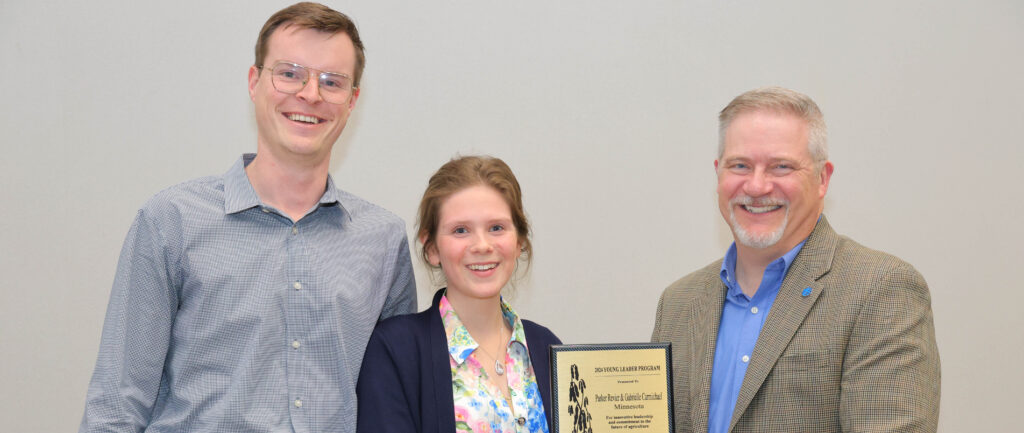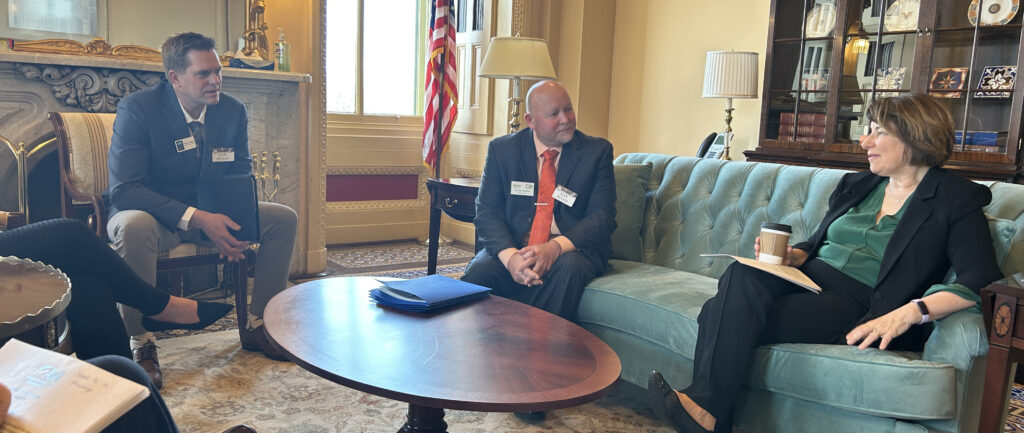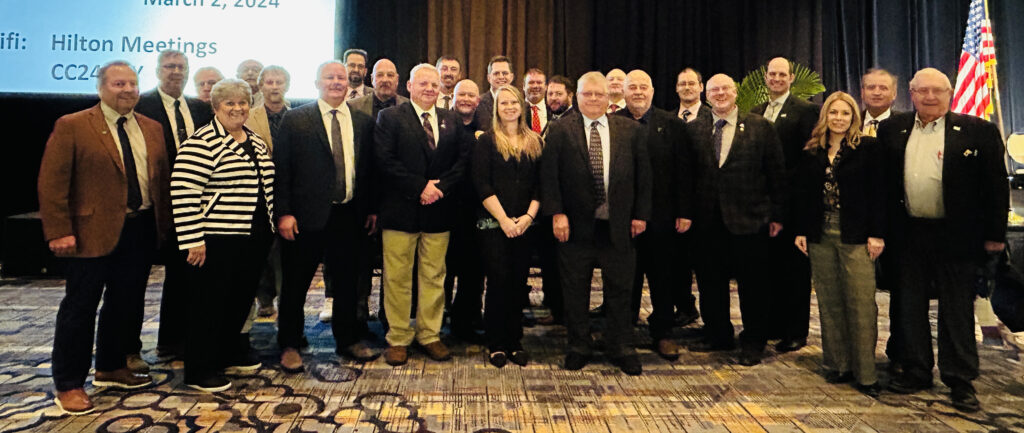In late February, Andy Pulk and his wife, Heidi, were all set to fly to Orlando, Fla., for Commodity Classic. The Wannaska farmers were anticipating a reprieve from a brutal Minnesota winter; they were planning to make the trip a working vacation, capped by the completion of the second and final portion of American Soybean Association’s (ASA) Young Leader Program.
“We had been looking forward to it for a long time, really ever since we attended the first portion of the program in Iowa in November,” Pulk says.

Heidi’s parents were in town and ready to take care of the Pulk’s five children. Everything was set. Then, just days before their departure, disaster struck. Andy Pulk was loading a load of wheat into a semi-truck when he slipped and fell, shattering ankle bones in both of his feet.
“The worst part was I landed on concrete,” he says.
He went to a local hospital and was transferred to a hospital two hours away in Grand Forks, N.D. There would be no trip to sunny Florida.
“It was hugely disappointing,” he says.
All told, Pulk’s recovery time is estimated at about 10 to 12 weeks, but, along with Heidi and help from employees and friends, he’s still planning to run his farming operation in Roseau County. He can use an electric-powered wheelchair and hopes to use a lift so he can still use his tractor.
“I told Heidi, ‘I’m 95 percent here, but I just can’t walk,’” Pulk says. “It’s going to make spring interesting – it’ll be a challenge.”
A natural advocate
Just a few days before his accident, Pulk joined other Minnesota Soybean Growers Association (MSGA) directors in St. Paul to meet with legislators and discuss MSGA’s priorities for 2019 and beyond.
“Advocacy interests me,” says Pulk, who’s a member of MSGA’s advocacy action team. “I like being involved, talking to legislators about being an activist for agriculture and informing them on what our needs are.”
Along with rural mental health and water quality issues, Pulk spoke to state legislators about the Soy Innovation Campus, which would directly impact farmers in the northwest Minnesota region where he farms.
“This would be huge for northwest Minnesota farmers from a value-added and product-demand standpoint,” he says.
Even though Pulk was unable to complete the second portion of the Young Leader Program, he says he’ll apply to attend the third phase of the program, which is held this summer in Washington, D.C.
“Andy’s been a great fit for MSGA, has really taken an interest in advocacy, and we’re hopeful he’ll be selected to attend the session in D.C. this summer,” says MSGA Executive Director Joe Smentek. “He’s really shown that he wants to continue pursuing leadership development.”
Once physically able, Pulk plans to join the Roseau/Lake of the Woods County Corn and Soybean Growers board and remain an MSGA director after his at-large term ends.
“I don’t do it for the recognition,” he says. “Hopefully a little bit goes a long way.”
With a late spring looking increasingly likely in Wannaska – as of early March, the region was at about 99 percent snow pack, compared to previous years – Pulk figures, with a little luck, he’ll able to contribute to spring planting. Either way, he’ll be getting plenty of assistance and support from his family and friends.
“It is what it is,” he says. ‘It won’t be easy but we’ll keep marching forward and not go cry in a corner.”
Making new contacts
Minnesota was one of two states to send multiple farmers as part of ASA’s Corteva Agriscience Young Leader Program. Haley Ammann, a Martin County farmer, was selected along with the Pulk.
Phase 1 of the program was held in late November in Johnston, Iowa. The farmers learned media training, how to be an advocate, toured Corteva’s headquarters and delivered presentations on their respective operations.
“I was a little hesitant at first because I didn’t know what to expect, but I’m so glad I did,” Ammann says.
In December, Ammann was selected by the Minnesota Soybean Research & Promotion Council to attend a tour on investments in biodiesel in New York City.

“That was a big takeaway through this experience – that we’re the only state with a 20 percent biodiesel mandate,” Ammann says. “Everyone else was, like, ‘Wow, 20 percent?’ That sets Minnesota apart.”
Ammann says the group grew closer during Phase II of the program in Orlando.
“We just became friends through having more training,” she says. “I applied to better myself and my operation, and now I’m walking away with 23 different friendships.”
Ammann says she would be interested in applying for Phase III in Washington, D.C., but she has a scheduling conflict.
“I wish I could, but I’m getting married that week,” Ammann says, laughing.





